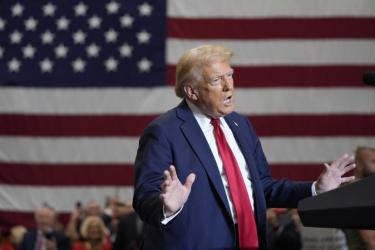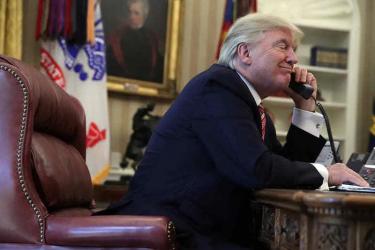Boris Kagarlitsky

Boris Kagarlitsky: Economic preconditions for peace
Boris Kagarlitsky — Assessing Russia’s economic situation, Ekaterina Shulman suggested that the country is running out of money and people. And indeed, by all indications, something is running out.

Interview with Boris Kagarlitsky from behind bars
Boris Kagarlitsky discusses prison life, the war, Stalinism debates, the state of Russia’s left media, “red imperialists”, prospects for a post-war political realignment and why he has no regrets that he did not leave Russia when he had the chance.

From US hegemony to a ‘war of all against all’: Boris Kagarlitsky on Trump’s first 100 days
Despite severe restrictions on political prisoners, Boris Kagarlitsky continues to analyse global developments. Here, he offers a sharp and often ironic reflection on the dynamics behind Trump’s return to power.

Should we expect a new world war? Two prison letters from Boris Kagarlitsky
Boris Kagarlitsky reflects on the possibilities of a new world war by drawing on historical analogies, analysing China’s place in the global system, and uncovering the deeper structural crises that underpin today’s international conflicts.

Boris Kagarlitsky: Waiting for Russia’s spring
Do we have reason to hope for a spring in Russia — let alone expect one soon? It seems that we do, writes political prisoner Boris Kagarlitsky from a Russian penal colony.

Boris Kagarlitsky on the New Deal proposal for Russia
Writing from a penal colony in Russia, Boris Kagarlitsky provides a detailed analysis of the New Deal proposal for Russia being developed by a group of leftist economists.

Russian political prisoner Boris Kagarlitsky on the Moscow-Washington axis
Boris Kagarlitsky — Washington’s new orientation is towards dominance, one that does not take into account the interests or rights of others, and in which Russia is being openly offered the role of junior partner.

Boris Kagarlitsky: Trump’s uncertain foreign policy
Boris Kagarlitsky — No one quite knows what to expect of Donald Trump’s presidency. Which is only natural, as he himself does not know.

Boris Kagarlitsky: ‘Do not include me in any prisoner exchange lists!’
Boris Kagarlitsky — There is a danger in replacing the fight for the complete release of all political prisoners with the compilation of exchange lists aimed at freeing a few dozen relatively well-known individuals, while thousands of others remain behind bars.

Boris Kagarlitsky on the US elections, Trump, peace talks and prospects for world war
From a Russian penal colony, Boris Kagarlitsky responses to questions about the US elections, its potential impacts on the conflicts in Gaza and Ukraine and prospects for a new world war.

